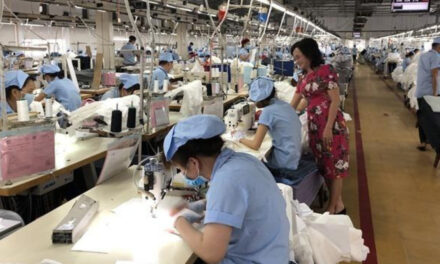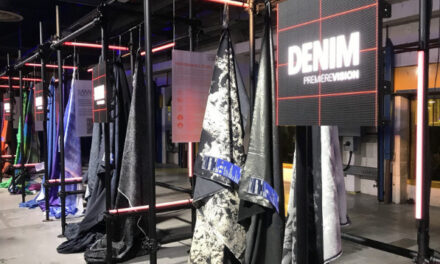 Better Work Jordan’s 2023 Annual Report has recorded violations of national laws and international labour standards in the country’s garment sector, especially in occupational safety and health (OSH), despite progress in compliance and the joint efforts of the government, employers and labour unions for a collaborative garment industry.
Better Work Jordan’s 2023 Annual Report has recorded violations of national laws and international labour standards in the country’s garment sector, especially in occupational safety and health (OSH), despite progress in compliance and the joint efforts of the government, employers and labour unions for a collaborative garment industry.
In the last few years, Better Work Jordan has observed improvements in recruitment practices, including reducing the instances of pregnancy tests for migrant workers and of migrants paying recruitment fees.
After stakeholders addressed these issues head-on in 2019, non-compliance rates increased as existing violations were caught, but now violations have substantially decreased.
Most factory-level engagement in Jordan—monitoring working conditions and advising on improvements — is now done jointly with the tripartite partners or exclusively by these stakeholders, the annual report pointed out. Labour inspectors are now a part of all factory compliance assessments, and in 38 per cent of the cases, they conduct assessments independently.
The advisory function is split between the Ministry of labour, which covers OSH (26 per cent of all advisory visits), and the General Trade Union of Workers in Textile, Garment and Clothing Industries (JTGCU), which covers social dialogue (41 per cent of all advisory visits). The remaining visits were done by Better Work Jordan. JTGCU hired seven trade union organisers to increase its presence in all industrial zones and among all workers.
Better Work Jordan conducts ‘shadowing assessments’ and a rigorous quality assurance/quality control system. In the future, more training and capacity building is planned to ensure that national constituents deliver high-quality services.
In 2022, 14 per cent of factories were non-compliant for the issue of recruitment fees, and nine per cent for the issue of pregnancy tests compared to 30 per cent and 55 per cent respectively in 2020. Better Work Jordan is mandatory for garment factories that export to the United States under the US-Jordan Free Trade Agreement.
As of December 2022, 95 factories employing 78,617 workers were enrolled in the programme. Migrants constitute three-quarters of the workforce, with the remainder consisted of Jordanians. The majority of workers are women—nearly 75 per cent of the production workforce.
In 2023, the programme seeks increased stakeholder ownership of compliance outcomes; sustainability of the Mental Health Project; research for evidence-based policy making; and increased focus on the recruitment process for migrant workers.

















